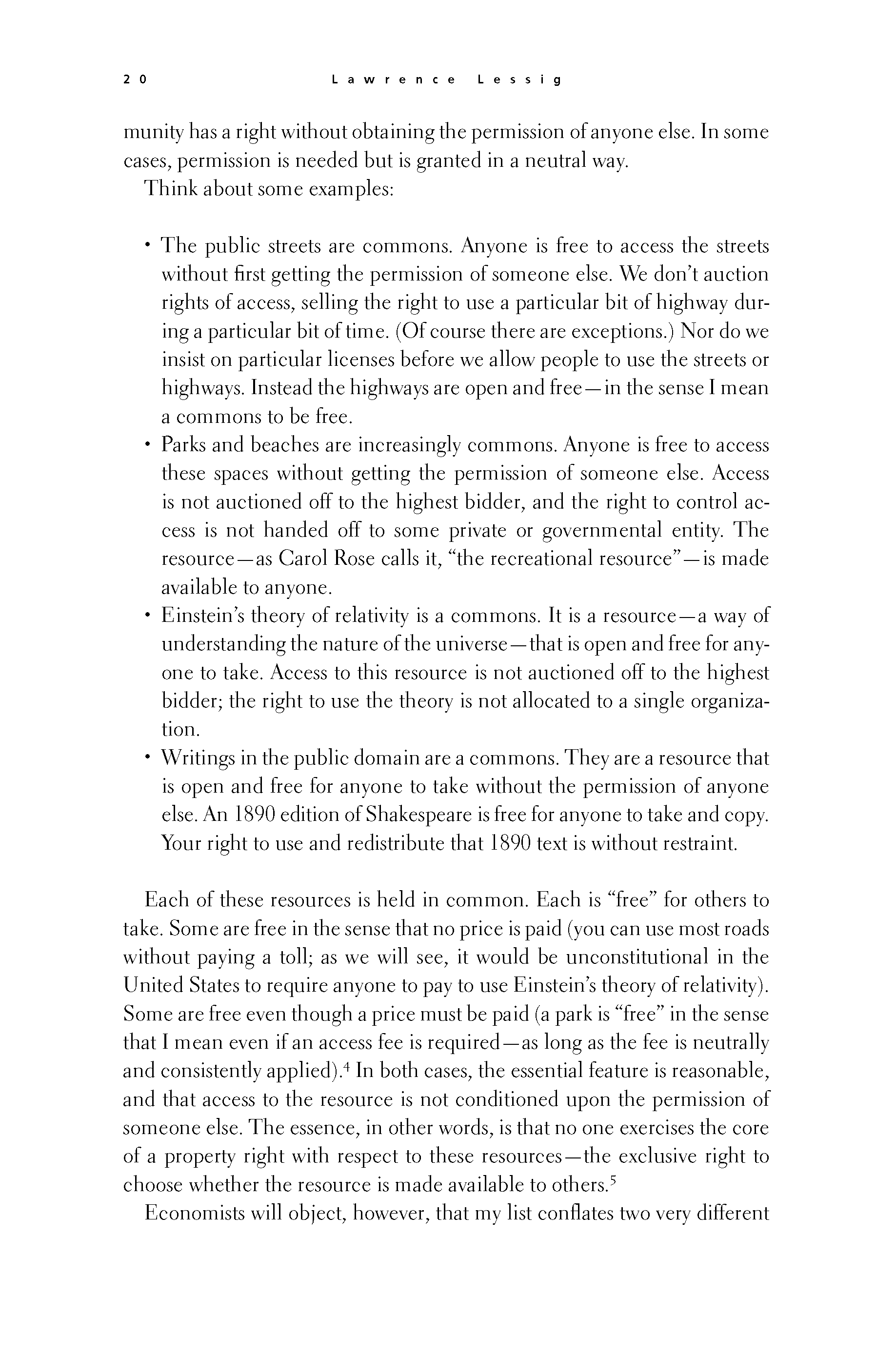 p019 _
-chap- _
toc-1 _
p020w _
toc-2 _
+chap+ _
p021
p019 _
-chap- _
toc-1 _
p020w _
toc-2 _
+chap+ _
p021
munity has a right without obtaining the permission of anyone else. In some
cases, permission is needed but is granted in a neutral way.
Think about some examples:
____ * The public streets are commons. Anyone is free to access the streets
____ without first getting the permission of someone else. We don't auction
____ rights of access, selling the right to use a particular bit of highway dur-
____ ing a particular bit of time. (Of course there are exceptions.) Nor do we
____ insist on particular licenses before we allow people to use the streets or
____ highways. Instead the highways are open and free -- in the sense I mean
____ a commons to be free.
____ * Parks and beaches are increasingly commons. Anyone is free to access
____ these spaces without getting the permission of someone else. Access
____ is not auctioned off to the highest bidder, and the right to control ac-
____ cess is not handed off to some private or governmental entity. The
____ resource -- as Carol Rose calls it, "the recreational resource" -- is made
____ available to anyone.
____ * Einstein's theory of relativity is a commons. It is a resource -- a way of
____ understanding the nature of the universe -- that is open and free for any-
____ one to take. Access to this resource is not auctioned off to the highest
____ bidder; the right to use the theory is not allocated to a single organiza-
____ tion.
____ * Writings in the public domain are a commons. They are a resource that
____ is open and free for anyone to take without the permission of anyone
____ else. An 1890 edition of Shakespeare is free for anyone to take and copy.
____ Your right to use and redistribute that 1890 text is without restraint.
Each of these resources is held in common. Each is "free" for others to
take. Some are free in the sense that no price is paid (you can use most roads
without paying a toll; as we will see, it would be unconstitutional in the
United States to require anyone to pay to use Einstein's theory of relativity).
Some are free even though a price must be paid (a park is "free" in the sense
that I mean even if an access fee is required -- as long as the fee is neutrally
and consistently applied).[2-4] In both cases, the essential feature is reasonable,
and that access to the resource is not conditioned upon the permission of
someone else. The essence, in other words, is that no one exercises the core
of a property right with respect to these resources -- the exclusive right to
choose whether the resource is made available to others.[2-5]
Economists will object, however, that my list conflates two very different
[[20]]
p019 _
-chap- _
toc-1 _
p020w _
toc-2 _
+chap+ _
p021